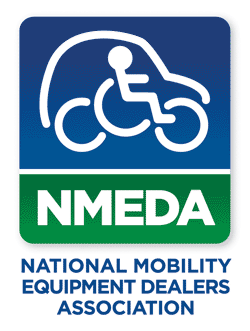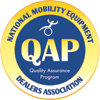special image
1000 Main St Bridgewater, MA 02324
Call (508) 697-6006 for sales or call (508-697-8324 for 24 hour service.
Email Us: shop@ai1.com
Service - M - F 8:30AM to 4:30PM Sales - M - F 9:00AM to 6:00 PM


| Automotive Innovations | 1000
Main St. Bridgewater, MA 02324 (508) 697-6006 |
||
| New England's Premier Adaptive Dealer. | Certified
Collision & Auto Body Repair Center |
|
|
| Can I drive after a stroke? |
Driving is often a major concern after someone has a stroke. It’s not unusual for stroke survivors to want to drive. Being able to get around after a stroke is important. Safety behind the wheel is even more important after a stroke. Injury to the brain may change how you do things. Before you drive again, think carefully about how these changes may affect your safety and that of your family and others. Often survivors don't realize the difficulties that they might have when driving after a stroke. Some may not know all of the effects of their stroke. They may feel that they’re able to drive, when that's a bad idea. Driving against your doctor’s advice can be dangerous and may be illegal. In some cases, your doctor may have the legal responsibility to notify your state that you’ve been advised not to drive. How can I tell if I can drive? Talk to your doctor or occupational therapist. He or she can tell you about your stroke and whether it might change if you can drive. You’ll also get a professional opinion based on experience. Contact your State Department of Motor Vehicles. Ask for the Office of Driver Safety. Ask what requirements apply to people who’ve had a stroke. Have your driving tested. Professionals such as driver rehabilitation specialists can evaluate your driving ability. You’ll get a behind-the-wheel evaluation and be tested for vision perception, functional ability, reaction time, judgment and cognitive abilities (thinking and problem solving). Call community rehabilitation centers or your local Department of Motor Vehicles. Enroll in a Driver’s Training Program. For a fee, you may receive a driving assessment, classroom instruction and suggestions for modifying your vehicle (if necessary). These programs are often available through rehabilitation centers. Ask your family if they have noticed changes. Those around you may notice changes in your communication, thinking, judgment or behavior that should be evaluated before you drive again. They often have many more opportunities to observe changes than others do. What are some warning signs of unsafe driving? If you or someone you know has experienced some of these warning signs of unsafe driving, please consider being tested. Drives too fast or too slow for road conditions or posted
speeds |
special image |
Our Location: 1000 Main St Bridgewater, MA 02324 Call (508) 697-6006 for sales or call (508-697-8324 for 24 hour service. Email Us: shop@ai1.com Service - M - F 8:30AM to 4:30PM Sales - M - F 9:00AM to 6:00 PM |
|||
  |
||||